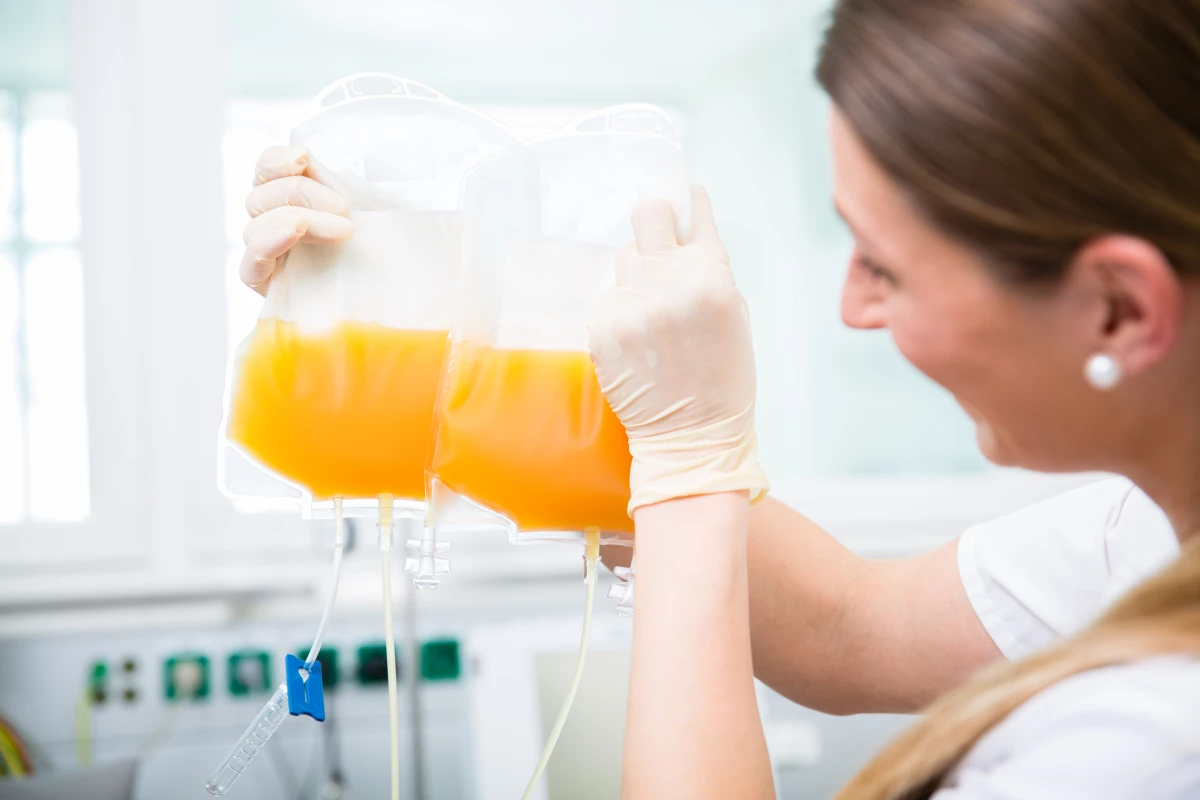A clinical trial run by the National Institutes of Health exploring the efficacy of convalescent plasma in treating mild to moderate COVID-19 patients has been halted. The once-promising treatment was deemed unlikely to be of any benefit and follows on from prior trials halted for similar reasons.
Among the many experimental treatments for COVID-19 that arose in early 2020 as the pandemic took hold, convalescent plasma was perhaps the most intriguing. The idea of using blood from a patient who had recovered from an infection to treat the same acute infection in another was far from new.
Going back to the 19th century convalescent plasma has a long but surprisingly understudied history. Modern science understands the treatment could hypothetically work by transplanting antibodies against a viral infection from one patient to another. However, there isn’t a significant volume of robust clinical research proving it actually works.
Early in 2021 a large international trial testing several prospective COVID-19 treatments halted its convalescent plasma arm. Called REMAP-CAP, the trial spanned 15 countries and 290 hospitals.
An interim analysis of the data suggested convalescent plasma treatment had no effect on outcomes for severely ill patients. But there were suggestions the treatment may still be useful if administered early to mild or moderate cases.
... although the treatment was found to be safe, no benefit was seen in this particular patient group.
The NIH trial, launched in August last year, was investigating treating mild to moderate COVID-19 cases who presented to emergency rooms with symptoms but were not ill enough to be admitted into hospital. The plan was to recruit 900 patients.
An interim analysis of the data by an independent monitoring board recently evaluated results from the first 511 patients enrolled in the trial. The board concluded, although the treatment was found to be safe, no benefit was seen in this particular patient group.
“After the study participants received either the COVID-19 convalescent plasma or a placebo, researchers tracked whether the participants needed to seek further emergency or urgent care, had to be hospitalized, or died within 15 days of entering the trial,” the NIH reports in a statement. “The recent data analysis from the study indicated no significant difference in the proportion of participants who experienced any one of these outcomes.”
This is by no means a definitive statement on the efficacy of convalescent plasma as a treatment for COVID-19. There are still many ongoing trials around the world testing different therapeutic protocols or plasma antibody concentrations. Nevertheless, the body of evidence that seems to be accumulating suggests this old anecdotal treatment may not be as broadly effective as many had hoped twelve months ago.
Source: NIH




